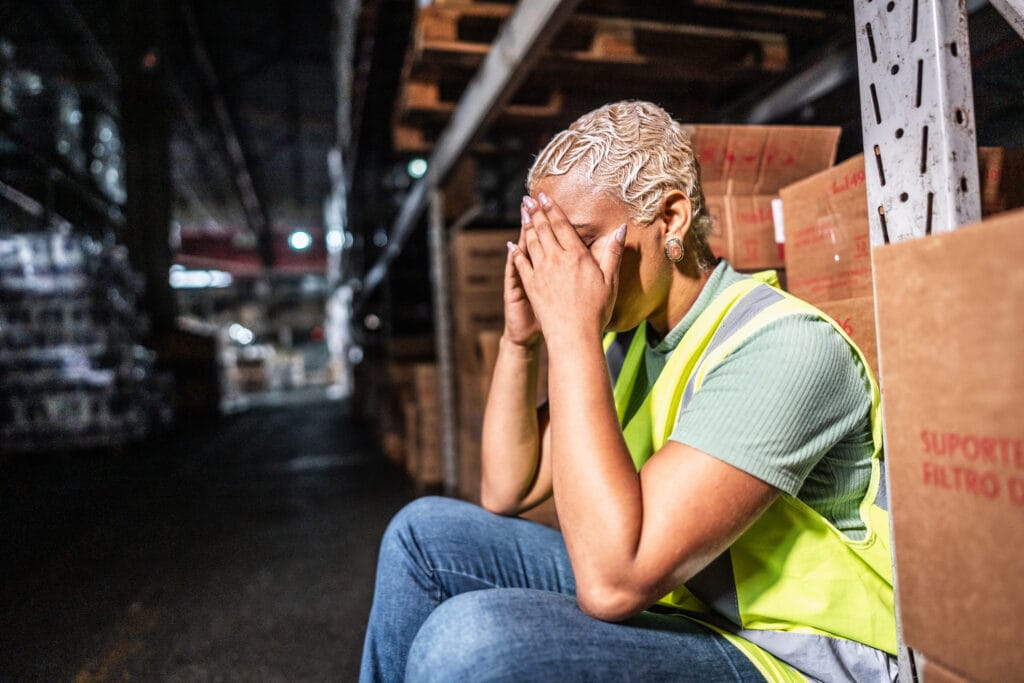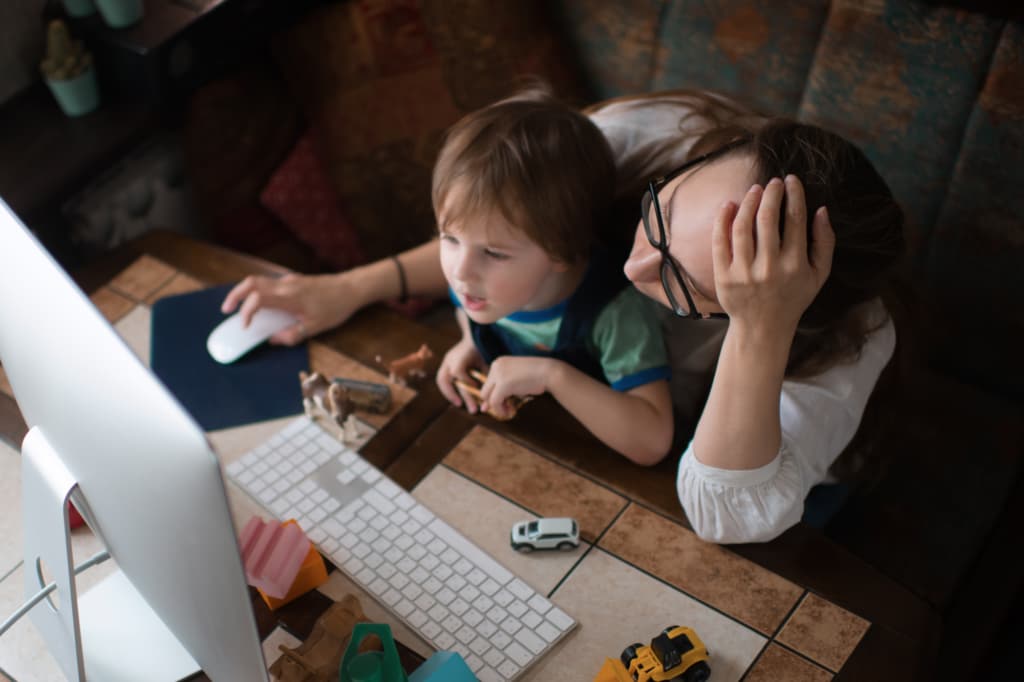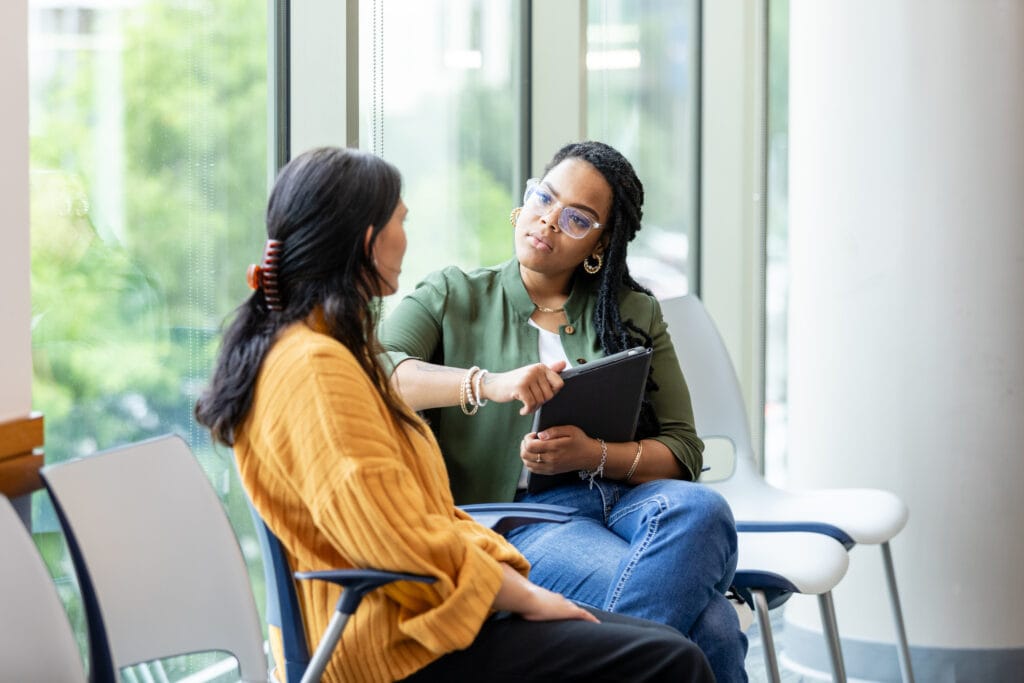Certain aspects of aging can make it challenging for any senior to remain socially engaged and active in their communities. But older LGBTQ adults face a higher risk of social isolation compared to the general population, according to the “Aging with Pride” report by the LGBT+ National Aging Research Center.
Additionally, the community is three to four times less likely to have kids, twice as likely to live alone and to be single, and more likely to be estranged from biological families.
This makes it especially vital for older LGBTQ adults to proactively find ways to remain socially engaged, says Bill Gross, SAGE’s Assistant Director of Special Programs. “What I’ve found is that the people who continue to make those connections are the people who are the most healthy and happy,” he says.
Why It’s so Important for LGBTQ Seniors to Stay Engaged
Loneliness is a national epidemic, but it is even more prevalent in LGBTQ older adults, given the fact that after facing a lifetime of discrimination, they often carry a sense of mistrust that leads to avoidance of services and activities, says Karen McPhail, a registered nurse and the executive director of Eldementals, LLC. After working with a transgender client who faced discrimination in a senior facility, McPhail, with the help of her LGBTQ daughter, created the nonprofit Aging Rainbows in 2019 to support LGBTQ older adults.
The struggles McPhail has observed are echoed in the Aging With Pride report, which found that in addition to increased isolation, the older LGBTQ community is more likely to experience discrimination, health issues and lower income, with more limited access to key aging, health, and support services.
Thankfully, the report points to strategies for LGBTQ seniors to cultivate resilience against these challenges, including:
- Have pride and engagement in their communities
- Find deep satisfaction in their lives
- Foster “close kin families of support”
Indeed, McPhail has observed by working with countless LGBTQ seniors how important social connection is.
“If we can foster relationships for these individuals, we can help them slowly form trust,” she says, adding that forming relationships and engaging activities that provide purpose help reduce stress, which can improve physical and mental health. Regardless of ability issues or memory issues, there are ways your older loved one can find connection.
Whether you’re a family caregiver or a professional caregiver of an LGBTQ adult, here are ways to help them get engaged with their community.
Help Them Explore Their Community Center
There are now hundreds of LGBTQ community centers around the nation with new ones popping up all the time. While services and programming vary, these organizations typically offer volunteering opportunities, social events, support groups, social activism efforts, community assistance, and in some cases, direct health services.
For example, the Los Angeles LGBT Center has programs for seniors throughout the month, ranging from support groups to veterans or caregivers to group exercise and dance classes to casual chat gatherings.
Check the CenterLink directory, which lists LGBTQ community centers in the U.S. by location.
Find Opportunities to Volunteer in Their Community
An amazing way for your senior loved one to get involved is to volunteer in local LGBTQ organizations. “I’ve found that people tend to start devaluing older adults, but in truth, older adults have a myriad of expertise, mentorship, and leadership they can share,” Gross says.
Since society in general places less value on older adults, McPhail says it’s easy to lose a sense of purpose. Volunteering offers an opportunity for both engagement and a sense of purpose in doing work that positively impacts their community, she says. “It’s critical to not just have opportunities to engage, but to find purpose again. Because when you find purpose and your group, you start connecting, thriving, and valuing your health holistically, and you have something you want to live for.” It’s especially helpful when seniors can find opportunities that rely on skills they have or things they can still do well.
Some volunteering may require in-person attendance or physical work, but those with mobility issues can find plenty of opportunities that can be done at home either online or by phone. Here are a few ideas:
- Youth programs: Some cities have programs for LGBTQ youth that need adult chaperones, facilitators, or mentors at their meetings and events.
- Advisory boards: Nonprofits and government bodies typically recruit volunteer advisory boards. With regular meetings and events, being on a board only offers a senior ongoing social opportunity, plus a way to be involved in and help their community.
- Pride events: If your city or county puts on an annual Pride parade or festival, you could sign up to volunteer with the organization. There are always day-of needs, but there are also usually year-round opportunities for volunteers to help with planning and fundraising. McPhail notes that her organization is working with Reston Pride in Northern Virginia to help plug LGBTQ seniors in with volunteer opportunities and events.
Link Them With a Social and/or Support Group
It can be hard to meet like-minded people organically, so many areas offer organized support groups and/or social clubs that bring LGBTQ adults together. If your area has a community LGBTQ center, that’s a great place to start.
A few other resources:
PFLAG: See if your area has a PFLAG chapter, which brings together the LGBTQ community and their allies.
Meetup.org: Look for local groups or events for LGBTQ seniors on Meetup.org. Some are one-off, but there are many social groups with recurring events, such as brunches, book clubs, or outdoor walks.
Services & Advocacy for LGBT Elders (SAGE): SAGE offers support and social groups, both offline and in person.
Gross has run SAGE’s long-term HIV survivor group for two years, and he says it going fully virtual the past year has allowed more people to participate, especially those with health or mobility issues. “It’s been an opportunity to reach people where they are, literally, and at a time when they really needed it,” he says. “It helped provide a sense of connection and a cultivation of resilience in times of stress and isolation.”
Sesh: If there’s nothing in your area for your loved one, look at Sesh, a new online platform for therapist-led support groups, many of which focus on the LGBTQ community.
Encourage One-on-one Opportunities
If the senior prefers a more personal connection over a group gathering, certain programs focus on matching two people together. For example, Gross says, SAGE’s Friendly Visitor Program matches a homebound LGBTQ senior with a volunteer who visits and calls regularly to offer support and socialization. (During the pandemic, visits have been virtual, though they’re transitioning back to in-person soon.)
During the pandemic, the organization also introduced SAGEConnect, a program that matches participants with someone to have casual weekly phone or video calls for at least six weeks. Gross says these programs work well because they focus on a reciprocal relationship, not one where one person is taking care of the other, and they often result in lasting friendships.
McPhail says Aging Rainbows offers some similar programming, with a focus on forging intergenerational relationships “to expand upon and give them safe access to people who can provide support, since often their chosen family is aging too.”
Research LGBTQ Housing
One way to build connection into the senior’s daily life is to help them move into LGBTQ housing, whether it’s an LGBTQ-focused or affirming care facility or an intentional living community. “The opportunity wasn’t available a decade ago for LGBTQ older adults to actually live in communities with each other, with the shared knowledge of what they’ve been through with hopefully less of a fear of discrimination or stigma,” Gross says.
This option may be especially useful for those with memory or mobility issues, who struggle to attend events or social groups.
Seniors who don’t want to live alone but don’t want to face discrimination while seeking housing can look for a SAGECare-credentialed facility to ensure they live somewhere with a supportive community.
What Staying Connected Can Mean for LGBTQ Seniors in the Long-run
Getting engaged with their community provides LGBTQ seniors with more than just social connection and purpose; Gross says it also ties into the importance of being witnessed.
“We all realized over the past year, regardless of our ages, how important it is to be seen and heard—especially those of us who live alone, don’t have a partner or don’t have children, which is the case for many LGBTQ adults,” he says, adding that it’s vital to find and develop connections and stay active in the outside world.
For support, contact a Senior Care Advisor at Care.com. We are master’s level social workers specializing in adult and senior care. Call us today at (855)781-1303 x 3 or email questions to careplanning@care.com.





